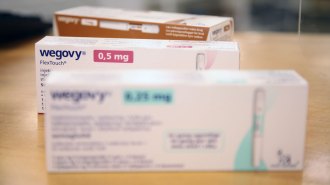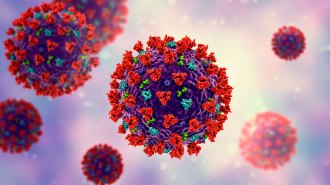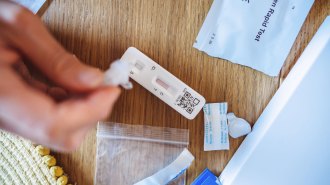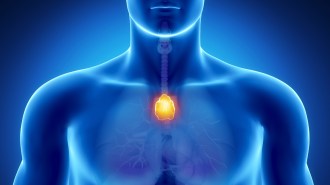Health & Medicine
-
 Neuroscience
NeuroscienceThree ways of rejuvenating aging brains may work via the same protein
Three brain rejuvenation methods may exert their effects through the same molecule, at least partly, which could lead to therapies for cognitive decline.
By Simon Makin -
 Health & Medicine
Health & MedicineMexican virologist Susana López Charretón uncovered rotaviruses’ secrets
Knowledge of the complex dance between virus and host cell has led to the development of life-saving vaccines.
-
 Health & Medicine
Health & MedicineWhat we still don’t know about Wegovy’s effect on strokes and heart attacks
A clinical trial suggests that semaglutide, a drug used to treat obesity and diabetes, may protect cardiovascular health in a broad group of people.
By Meghan Rosen -
 Health & Medicine
Health & MedicineWhat to know about the new RSV vaccine for pregnant people
Data on the FDA-approved Pfizer vaccine are promising. Questions about safety and how it might be used in conjunction with another new RSV shot remain.
-
 Psychology
PsychologyAn apology to Indigenous communities sparks a mental health rethink
The leading U.S. psychological association pledged to embrace Indigenous approaches to healing, which requires rethinking how to address mental health.
By Sujata Gupta -
 Health & Medicine
Health & MedicineHealth risks can persist at least 2 years after COVID-19, new data suggest
U.S. veterans who tested positive for COVID-19 in 2020 remain at higher risk for many long COVID conditions, from heart disease to gastrointestinal issues.
-
 Health & Medicine
Health & MedicineWhat should we expect from the coronavirus this fall?
The virus may be reaching a phase of baseline circulation, says epidemiologist Aubree Gordon. But it’s unclear what will happen in the next few months.
-
 Neuroscience
NeuroscienceNeuroscientists decoded a Pink Floyd song using people’s brain activity
The technique could be used to improve devices that allow communication from people unable to speak.
-
 Health & Medicine
Health & MedicineWhy are more people under 50 getting colorectal cancer? Scientists have some clues
Science News spoke with doctors about their research into early-onset colorectal cancer. Here’s what they’re learning and what questions remain.
By Meghan Rosen -
 Climate
ClimateExtreme heat taxes the body in many ways. Here’s how
Climate change is bringing longer, humid heat waves and hotter nights. Here's how our bodies try to beat the heat and what happens when they can't.
-
 Health & Medicine
Health & MedicineClimate change puts children’s health at risk now and in the future
Heat waves, wildfires and other climate-related effects on the environment are particularly hard on children’s physical and mental health.
-
 Health & Medicine
Health & MedicineThe thymus withers away after puberty. But it may be important for adults
The thymus is considered somewhat unnecessary in adults. But a new study finds that its removal is associated with heightened risks of death and cancer.